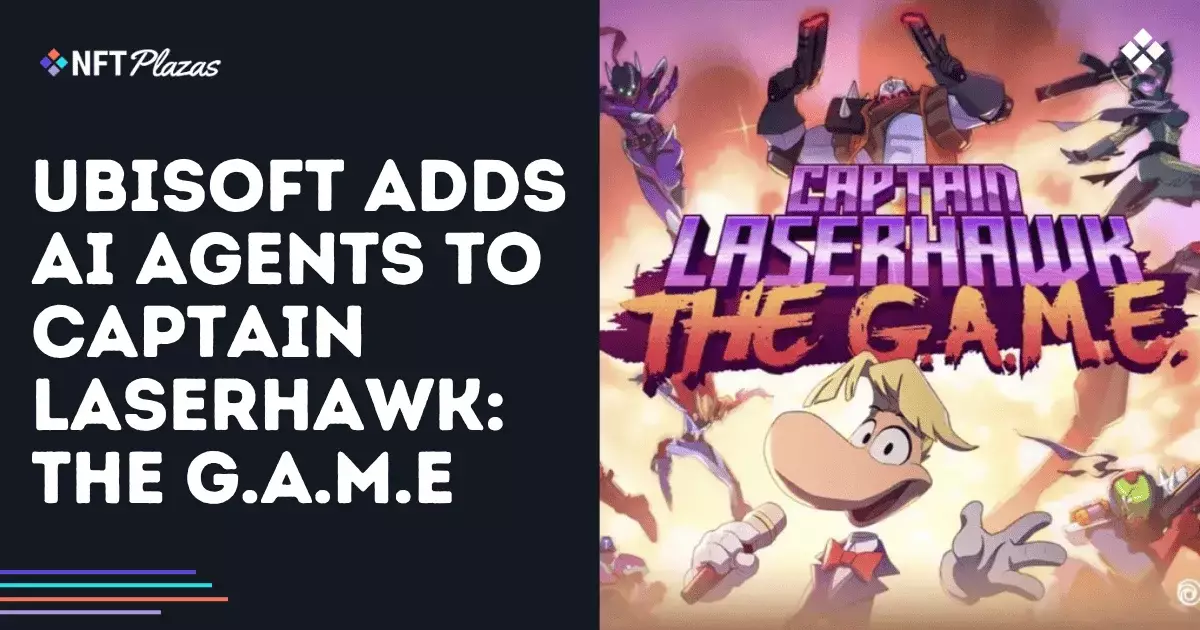The recent integration of autonomous AI agents into Ubisoft’s blockchain-based game, Captain Laserhawk: The G.A.M.E., signals a superficial attempt to embed artificial intelligence into complex social and democratic processes within gaming. While it might appear innovative on the surface, this initiative raises fundamental questions about the substance of AI’s role in governance, player agency, and the broader implications for player engagement and trust. It’s a move that, in its current form, seems more like a marketing stunt than a meaningful technological breakthrough.
Tokenization and NFTs: Supercharging the Illusion of Control
Ubisoft’s linking of each AI agent to a unique NFT character, the Niji Warriors, underscores a troubling trend—turning ownership into a veneer for control. This isn’t simply about owning a digital asset; it’s about commodifying decisions and governance. The underlying premise that NFTs can be tied to traits affecting AI decision-making subtly shifts gameplay from an immersive experience into a showcase for blockchain’s monetization potential. Whether it’s a player or an autonomous agent, the core issue remains—are we genuinely empowering players, or merely creating digital collectibles that serve corporate interests?
Autonomy or Automation: The Illusion of Player Agency
One of the most critical flaws in Ubisoft’s AI experiment is the deliberate ambiguity surrounding player control. While players can override AI decisions, the default is for these agents to act independently based on their predefined personas. This design subtly strips players of active involvement, risking a passive gaming experience where decisions are made behind the scenes. It fosters a dangerous dependency on automation under the guise of enhanced gameplay, risking the erosion of meaningful player agency. The autonomy granted to these agents is not a game enhancement but a social experiment in automation’s encroachment into human decision-making.
Governance as a Digital Spectacle
Ubisoft promotes AI-mediated voting within the game’s governance layer as an innovative feature. However, this blurs the line between genuine democratic participation and superficial token-based decision-making. If AI agents are set to act on behalf of players—including interpreting general commands or adapting challenges—it raises concerns about the authenticity of collective decision-making. Is this a true reflection of player intent, or merely a simulation of democracy designed to pacify players while executives maintain control? Such systems risk trivializing the complex nature of governance, reducing it to an automated spectacle devoid of genuine democratic value.
Transparency and Risks: An Overstatement of Safety
While Ubisoft claims to log all decisions on Aleph Cloud for transparency, this should not be mistaken for safety or fairness. AI systems, no matter how moderated, are inherently fallible. There is an overconfidence in managing risks of harmful content or unintended behaviors, especially in autonomous decision-making. Relying on AI to interpret complex human traits like values and temperament is fraught with peril, as these are inherently nuanced and context-dependent. The safety mechanisms still leave significant room for biases or misjudgments that could influence gameplay and governance outcomes in unpredictable ways.
Ultimately, Ubisoft’s experiment exemplifies an ambitious yet superficial attempt to embed AI into gaming governance, driven more by innovation buzzwords than by genuine advancements in technology or democratic ideals. The blending of NFTs, AI autonomy, and blockchain governance feels more like a corporate circus than a serious step towards transforming interactive entertainment. Until these systems are able to respect and truly empower human agency rather than manipulate perceptions of control, their true potential remains unfulfilled. As this experiment unfolds, it’s imperative that players and developers alike scrutinize whether such systems serve the people or simply commodify their participation into another digital asset.















